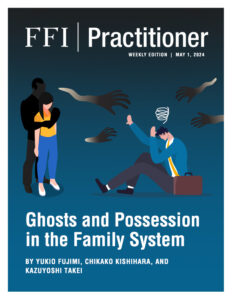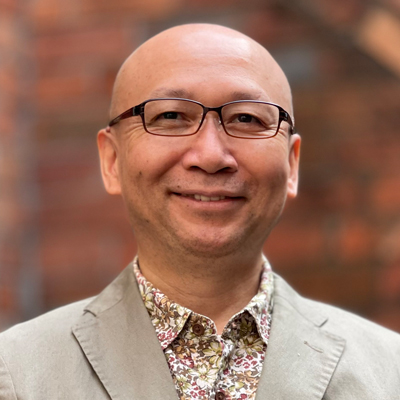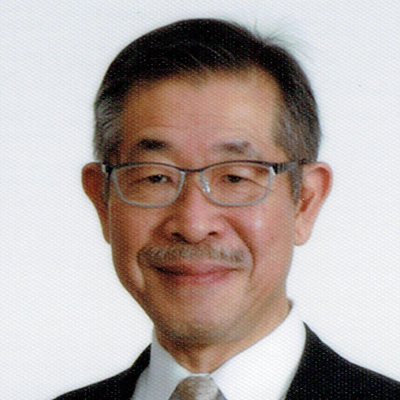
View this edition in our enhanced digital edition format with supporting visual insight and information.
Thanks to the FFI Asian Circle Virtual Study Group member and FFI Fellow Kazuyoshi Takei and co-authors Yukio Fujimi and Chikako Kishihara for this week’s edition. Their article uses a case study of a third-generation family enterprise to consider several psychological concepts—family systems theory, projective identification, and process work—and how family enterprise advisors might apply them to their work with clients.
When dysfunctional relationships exist within a family, ghosts may haunt the family. “Ghosts” in a family live in unconscious reality and represent repressed emotion, dissociated personality and cognition, marginalized trauma, and disavowed unspoken patterns and beliefs. Unless these ghosts are exposed in conscious reality, they can be passed onto the next generation in a negative way.
Ghosts that haunt an enterprising family can also harm its business and hinder its growth. Relationship tensions often surface during generational transitions when the roles of family members change significantly. In this article, we would like to discuss the phenomenon of ghosts and depth psychology terms like “projection,” “projective identification (PI),” and “a role” or a “ghost role” as they relate to the field of family enterprise.
Projection and Projective Identification
Depth psychology is the study of how unconscious aspects of the human experience influence psychological conditions and treatments.1 “Projection” is an important term in depth psychology coined by Sigmund Freud. In Japanese, the word “projection” is made of the characters:「投影(TOUEI)」.「投(TOU)」means “to throw” and「影(EI)」means “shadow.” 「投影(TOUEI)」thus translates to “throwing your unconscious shadow onto others.”
“Projective identification (PI),” a term coined by Melanie Klein, takes the concept of projection a step further. PI is a defense mechanism where a person unconsciously fantasizes that part of the ego, or the conscious sense of self, is split off and projected onto another, either to harm or protect this rejected part of the self.2,3 What remains of the self is thin and vulnerable. In PI, the recipient of this “projection” is then unconsciously forced to “identify” themselves with the negative image, leading to complex and unhealthy family dynamics. If the PI is not exposed, it can then be transmitted from one generation to the next as a ghost, perpetuating misunderstandings and dysfunctional dynamics.
The impact of projection and PI on an individual differs. Some may feel emotionally influenced but can retain a sense of identity, while others can feel that they temporarily lose their identity as it becomes “hijacked” and “controlled” by the projected ghost. The following case study illustrates how internalized projections can possess individuals externally.
Family Systems Theory
Murray Bowen’s family systems theory is influenced by psychoanalytic ego psychology—an integrative theory between depth and family psychologies. Both PI and family systems theory (FST) address processes that are beyond an individual’s rational thinking. However, while projective identification emerges from the depth of an individual’s psyche, family systems theory focuses on the relationships among family members.
Family Systems Theory and Projective Identification: A Case Study
In a Japanese family business in its third generation, a father and his two sons are active in the business. The father is an alcoholic, and the family members respond to his addiction in different ways. The younger son unconsciously hates the part of himself that resembles his alcoholic father. Both his grandfather and father were alcoholics, and he, too, turns to excessive drinking when feeling depressed. The older brother is unable to consume alcohol due to an allergy and is emotionally close to their frequently depressed mother. Their father and mother have a strained relationship.
Both the maternal and paternal sides of the family have experienced traumatic events—the death of the first son in the mother’s family due to flu and the death of the first son in the father’s family from a car accident—which contributed to the father’s subsequent alcoholism and the mother’s subsequent depression. The mother’s family has also faced a long-standing issue of depression, experienced by both the mother and grandmother.
Jungian psychology says that the younger brother’s excessive drinking belongs to his shadow—a part of himself that he does not want to own. The younger son represses the negative father image within him and unconsciously “throws” it onto someone else—his older brother. This causes him to view his older brother as being exactly like his father, despite the fact that his older brother cannot drink alcohol. This is the projection of the younger son’s shadow image, or his「投影(TOUEI)」.4 To him, his older brother is as much of an alcoholic as his father is. This unconscious projection creates tension, leading to chronic communication issues and relationship complications, fueled by the ghost of projection.
In the case of PI, the situation intensifies. The older brother, emotionally pressured to embody the traits of their father in the younger brother’s unconscious imagination, begins to assume behaviors similar to what may be expected from an alcoholic. When the twenty-four-year-old projects onto his brother the qualities he cannot tolerate within himself, he becomes emotionally reactive and short-tempered. This charged dynamic saturates the family, as an emotional unit, with a sort of “psychological alcoholism.”
PI is a powerful ghost, capable of perpetuating its influence into the next generation if not properly addressed. Understanding and working through these unconscious processes are vital to untangling the intricate dynamics within the family and preventing the passage of psychological ghosts.
Process Work’s Perspective
Process Work, rooted in Jungian Psychology, is an approach in depth psychology that integrates somatic, relational, and unconscious elements.5 It reconceptualizes projective identification (PI) as a “dream-up,” suggesting one’s nighttime dreams can affect or predict daytime behaviors of another. Since dreams exist in an unconscious reality with no boundaries, individuals can travel across different countries and times in dreams. Because of the lack of boundaries in dreams, similar dream patterns can traverse generational boundaries. Process Work shifts the focus from individuals to the family dream field, viewing a drunk father as a “role” in the family dream field rather than as a personal attribute. When persistent psychological themes such as alcoholism or depression span generations, Process Work attributes them to the family dream field, avoiding individual blame.
Process Work aims to make roles and ghost roles visible; it promotes a cooperative and collaborative approach to identifying and countering unconscious roles within the family system without blaming individuals.6 In the case study, recurring themes persisted on both sides of the family—a history of alcoholism on the father’s side and a history of depression on the mother’s. Process Work would interpret the father’s alcoholism and the mother’s depression as defense mechanisms against confronting the deaths of the first son in their families, highlighting the psychological complexity involved. Process Work also emphasizes that roles and ghost roles persist beyond an individual’s death, shaping the family unconscious or dream field.
With the term “ghost role,” Process Work identifies an invisible yet potent force like the deceased first son in the family dream field. Failure to address this ghost role can perpetuate depression and alcoholism across generations. Working through the ghost role becomes crucial for the family’s well-being, preventing continuous overwhelm in subsequent generations.
Bowen’s Theory and Ghosts
A central aspect of Bowen’s family systems theory (FST) is the genogram, which helps visualize the history of family dynamics and helps to raise awareness of the possibility of the dream-up phenomena. A potential gap in systems thinking may be seen through the lens of “triangulation” from Bowen’s FST.7,8 The ghost role can also occupy a possible gap in systems theory. Process Work’s perspective on the ghost role, together with Bowen’s FST, contributes to a comprehensive understanding of circular causality, enhancing the therapist’s ability to navigate system dynamics effectively.
Tips for Practitioners
A family business practitioner may deal with ghosts like projection, projective identification, a role, and a ghost role with the following intersubjective approach:
- Be mindful about small, unfamiliar, and uncomfortable bodily feelings or sensations while working with a family enterprise client. It may be dissociated emotion or trauma brought about by the client family’s ghost, which could now be felt by the advisor.
- If there are small, unfamiliar, and uncomfortable bodily feelings or sensations, make a conscious effort to note them. The advisor should try to “realize” them in his or her imagination or even play the feelings out physically.
- Imagine what role or ghost role the advisor might be taking on unconsciously. What is the unique role and ghost role in the client’s family field?
- “Externalize” the role or the ghost role in front of the client family mindfully, and with compassion, talk about it with the family. The advisor can try this exercise individually in his or her imagination, meditation, journal work, or even with painting or clay.
Projection, projective identification, roles, and ghost roles in the family field can be powerful, uncontrollable forces. Addressing these dynamics is essential for maintaining the well-being and sustainability of both the family and the family business. The practitioner’s ability to navigate these unconscious elements strongly influences the overall health and wealth of the family and its business.
References
1 “What is Depth Psychology?” Pacifica Graduate Institute, accessed March 18, 2024, https://www.pacifica.edu/about-pacifica/what-is-depth-psychology/.
2 Ogden, Thomas. 1992. Projective Identification and Psychotherapeutic Technique. London and New York: Routledge.
3 “Projective Identification,” APA Dictionary of Psychology, accessed March 18, 2024, https://dictionary.apa.org/projective-identification.
4 Von Franz, Marie-Louise. 1995. Shadow and Evil in Fairy Tales, rev. ed. Boston and London: Shambhala Publications.
5 Mindell, Arnold. 1992. The Leader as Martial Artist: An Introduction to Deep Democracy. San Francisco: Harper.
6 Mindell, Arnold. 2000. Dreaming While Awake: Techniques for 24-Hour Lucid Dreaming. Charlottesville, VA: Hampton Roads Publishing Company Inc.
7 McGoldrick, Monica, and Randy Gerson. 1985. Genograms in Family Assessment. New York: Norton.
8 Bowen, Murray. 1978. Family Therapy in Clinical Practice. Northvale, NJ: Jason Aronson Inc.
About the Contributors

Yukio Fujimi is a certified Clinical Psychologist in Japan, a Certified Process Worker, a Financial and Family Wealth therapist, Negotiation Analyst Level 1 of the Japan Negotiation Association, and an NPO Inheritance Advisors Council Certified Member. He has provided couples and family therapy for 34 years. He is extensively involved in coaching for family business owners and executives of large corporations. He can be reached at gdmwx113@ybb.ne.jp.

Chikako Kishihara is the representative of the counseling office “Alchemia,” a certified clinical psychologist and a certified public psychologist in Japan. She provides psychotherapy, coaching, and consulting services to individuals, couples, and families. She is a director of the NPO Japan Holistic Medical Association and a director of the Japan Transpersonal Society. In addition, Chikako is a Process Work (Process Oriented Psychology) Second Training Teacher, Negotiation Analyst Level 1 by Japan Negotiation Association, and a certified member of the NPO Inheritance Advisors Council. She can be reached at info@alchemia.in.

Kazuyoshi Takei, FFI Fellow, joined his family’s 100-year-old company as the fourth-generation president and began his family business consulting career in 2006. In 2024, together with his partner June and a team of interdisciplinary experts, he launched Seven Springs, Inc. to provide comprehensive family business advice. He is a founding director of The Family Business Advisors Association Japan (FBAA) and author of “Why Family Businesses fail in 3 Generations?” He can be reached at takei@wellspring.co.jp.

View this edition in our enhanced digital edition format with supporting visual insight and information.





